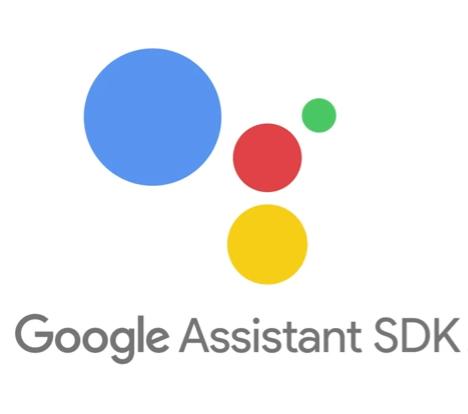| Google Assistant SDK Released |
| Written by Lucy Black | |||
| Monday, 01 May 2017 | |||
|
The Google Assistant SDK, launched as a Developer Preview, means developers can now embed Google Assistant in projects on their own hardware. Until now Google Assistant has been available on Google hardware, Google Home, Android Wear, Pixel phones and Android phones running Marshmallow and Nougat. It also powers Allo, Google's instant messaging mobile app for Android and iOS, where it provides a "smart reply" function that replies to messages with automatic suggestions. Back in January we reported that Google had opened up Actions on Google, its developer platform for Google Assistant, enabling developers to use its Conversation Actions for providing information, services, and assistance. At that time Google Home was the only device supported.
Now the Google Assistant SDK allows you to add Actions on Google, with its voice control, natural language understanding and Google’s smarts, to your own devices, as explained in this video by Wayne Piekarski.
The SDK comes with reference sample code in Python for prototyping on hardware such as the Raspberry Pi. If you want to work with other platforms, you can generate bindings from the gRPC API in a variety of languages. If you’re not familiar with gRPC, it’s a “high performance, open-source universal remote procedure call (RPC) framework”, also described as "declarative, strongly-typed, and language Independent" that uses Google Protocol Buffers as the Interface Description Language (IDL) for describing a service interface as well as the structure of the messages exchanged. This IDL can then be compiled to produce language-specific client and server stubs. Being language-independent means that you can describe your ideal service API and the messages that it supports, and then use “protoc”, the protocol compiler, to generate client and server stubs for your API. Out of the box, you can produce client and server stubs in C/C++, C#, Node.js, PHP, Ruby, Python, Go and Java. You can also get additional protoc plugins which can create stubs for Objective-C and Swift. A developer preview of the SDK is now available for those interested in tinkering with platforms such as the Raspberry Pi 3. Later this year, commercial device makers will also be able to use the SDK across a wide range of hardware. This raises the issue of cost, especially in light of the fact that Amazon has recently announced its charges for Lex, its equivalent bot-building cloud service, which has a free tier for the first year. Google hasn't mentioned charging for the Actions on Google service - but it could and making a distinction between tinkering with the platform and using it commercially perhaps suggests that a tariff will be introduced later this year.
More InformationIntroducing the Google Assistant SDK Related ArticlesGoogle Home Your Personal Assistant Amazon Lets Us All Use Lex To Build A Bot New Products For Amazon's Alexa
To be informed about new articles on I Programmer, sign up for our weekly newsletter, subscribe to the RSS feed and follow us on Twitter, Facebook or Linkedin.
Comments
or email your comment to: comments@i-programmer.info |
|||
| Last Updated ( Monday, 01 May 2017 ) |




